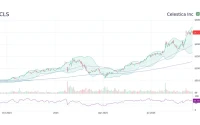So, after only two decades of spectacular thumb-twiddling, the federal government has finally noticed that the multi-trillion-dollar world of private funds might be a teensy bit attractive to people who wash money for a living. Let's all give a slow, sarcastic clap for FinCEN, the Financial Crimes Enforcement Network, for finally waking up from its long nap.
On August 28, they dropped a final rule that basically drags a huge chunk of the investment world, kicking and screaming, into the 21st century of financial regulation. The new mandate, effective January 1, 2026, reclassifies Registered Investment Advisers (RIAs) and Exempt Reporting Advisers (ERAs) as "financial institutions."
That sounds boring, I know. But what it really means is that the guys managing colossal private equity funds, venture capital, and hedge funds—the so-called "smart money"—now have to play by the same anti-money laundering rules as your local community bank.
Give me a break. You mean they didn't have to before?
For years, this sector has been a glorious grey zone. A place where a wealthy Russian oligarch or a corrupt foreign official could potentially park dirty cash with fewer questions asked than if they tried to open a checking account at Chase. FinCEN’s own data showed that between 2013 and 2021, over 15 percent of these advisory firms were mentioned in at least one Suspicious Activity Report (SAR). That’s the official paperwork for "hey, this looks sketchy as hell." And now they're finally getting around to plugging the hole. It only took a massive scandal involving stolen Malaysian government funds and a parade of sanctioned oligarchs to get their attention.
A Whole New World of Paperwork
So what does this actually mean for your friendly neighborhood wealth management firm? It means a mountain of compliance, a tsunami of paperwork, and a whole new level of liability. I can just picture the emergency partner meetings now, the air thick with the smell of stale coffee and panic as they realize their job just got a lot harder.
Under this new regime, every covered investment advisor has to set up a full-blown anti-money laundering program. This isn't just a memo from HR. It’s a formal, risk-based system with four pillars:
1. Internal policies and controls.
2. An independent compliance audit.
3. A designated AML compliance officer.

4. Ongoing employee training.
They'll have to conduct due diligence on their customers, monitor transactions, and file those lovely SARs when something smells off. The SEC, bless their hearts, will be in charge of making sure everyone is following the rules. So, what could possibly go wrong? How much faith do you have in the same agency that seems to consistently miss the biggest frauds until after they’ve imploded?
And here’s the kicker. The rule also applies to "foreign-located investment advisers" with a significant U.S. connection. So that hedge fund in the Caymans that advises a private fund with American investors? Yep, they’re on the hook, too. This ain't about protecting you and me, offcourse. It's about the government realizing it's been letting billions in illicit funds flow through a backdoor the size of a garage.
The whole thing reminds me of those Best Robo-Advisors: Top Picks for October 2025 articles you see everywhere, with their smiling authors and promises of simple, automated investing. It's all clean, friendly, and tech-driven on the surface. But underneath, the financial system is a messy, complicated beast, and this rule is the government’s clumsy attempt to finally put a leash on one of its wildest creatures.
The Glaring, Neon-Lit Invitation
Now, for the part that makes me want to bang my head on my desk. For all its tough talk, FinCEN punted on the single most important piece of the puzzle: a mandatory requirement to collect beneficial ownership information.
This is a loophole. No, a loophole is accidental—this is a damn invitation.
Right now, other financial institutions have to follow the Customer Due Diligence (CDD) rule, which means they have to identify the real, flesh-and-blood person who ultimately owns or controls a legal entity customer. But for investment advisers? FinCEN decided to "postpone" that requirement, pending a review.
Are you kidding me? The entire point of sophisticated money laundering is to hide behind anonymous shell companies. Not requiring RIAs to unmask the true owners is like building a brand-new bank vault but leaving the back door unlocked with a "Welcome" mat in front of it. They claim advisers can make a "risk-based determination" on whether to collect this info. Translation: They don't have to do it unless they really, really feel like it. And they expect us to believe that an online investment advisor or a massive private equity firm will go the extra mile to dig into a client's complex ownership structure when they don't have to? When that client is paying them millions in investment advisor fees?
It’s just absurd. They’ve created this massive new regulatory framework, which will undoubtedly spawn a cottage industry of AML consultants and compliance software, but they’ve left the most critical enforcement tool sitting on the shelf. Why? Is it too complicated? Too much pushback from the industry lobbyists? We don't have the full story, but the result is a rule that feels performative at best. It looks tough, it sounds tough, but the sophisticated players will find a way to dance right through the gaps.
Then again, maybe I’m the crazy one. Maybe I'm just too cynical about the whole system. But when you see a fix this obvious and this necessary get "postponed," you have to wonder who it's really designed to protect.
So, We've Solved Crime Now?
Let's be real. This is a necessary step, but it's about 20 years too late and deliberately incomplete. It creates a massive compliance burden that will ultimately be paid for by investors, while leaving the door wide open for the very criminals it's supposed to stop. It’s a classic case of bureaucratic theater: a big, loud announcement that generates headlines and makes it look like the government is taking action, when in reality, it's just a paper tiger with paper claws. The real sharks will swim right on by.









